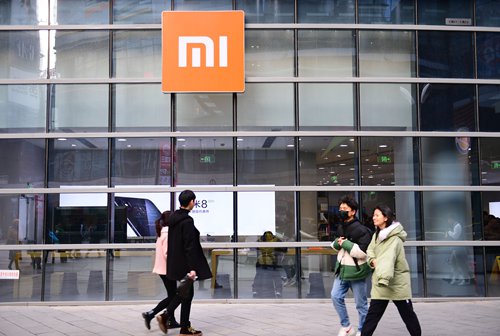Shenzhen-based Royole defending technology utilized in foldable smartphone
Royole defending technology utilized in foldable smartphone

Pedestrians walk past a Xiaomi store in Shenyang, Northeast China's Liaoning Province. Photo: VCG
In response to criticism that Royole is seeking market attention by boasting flexible Organic Light Emitting Diode (OLED) technology, the company said in a statement sent to the Global Times on Tuesday that its mass production technology for flexible panels is mature and innovative enough to "reduce costs to a large extent."
The Shenzhen-based company has been embroiled in a war of words with handset-maker Xiaomi in recent days over which company will offer the world's first foldable smartphone. The latter unveiled a concept foldable phone last week, which it said was the world's first double-folding smartphone. In December, Royole launched a foldable smartphone model called Flexpai, which the company also claimed was the world's first.
Xiaomi's move angered Royole Vice President Fan Junchao, who downplayed Xiaomi's ability to put the concept foldable smartphone into mass production in a WeChat post. Fan said that the smartphone Xiaomi showcased is a concept model bought from other vendors that has yet to be commercialized.
"The claim that Xiaomi has mastered flexible display technology is openly fabricating facts," Fan commented.
But Xiaomi later responded, saying that Fan's criticism is deliberately aimed at drawing eyeballs. "The flexible folding screen is the result of joint efforts by Xiaomi and supply chain partners," Xiaomi said in a statement.
The head-to-head confrontation between Royole and Xiaomi has also triggered market insiders' doubts about Royole.
In response, Royole said on Tuesday that its technologies for flexible OLED are innovative and different from the approach taken by South Korea's Samsung.
The company received orders worth about 4 billion yuan ($593.88 million) for flexible displays and other related products in the fourth quarter of 2018, the statement said.
